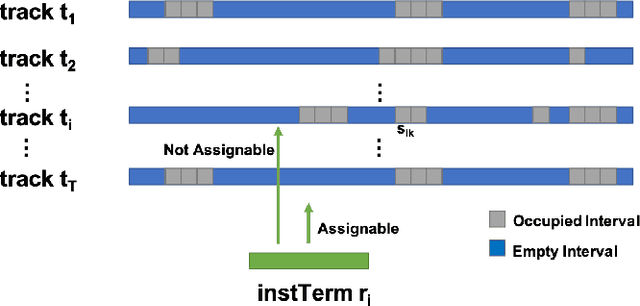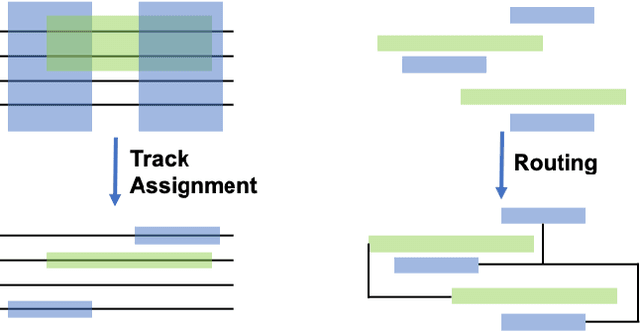Wangyang Zhang
Attention Routing: track-assignment detailed routing using attention-based reinforcement learning
Apr 20, 2020



Abstract:In the physical design of integrated circuits, global and detailed routing are critical stages involving the determination of the interconnected paths of each net on a circuit while satisfying the design constraints. Existing actual routers as well as routability predictors either have to resort to expensive approaches that lead to high computational times, or use heuristics that do not generalize well. Even though new, learning-based routing methods have been proposed to address this need, requirements on labelled data and difficulties in addressing complex design rule constraints have limited their adoption in advanced technology node physical design problems. In this work, we propose a new router: attention router, which is the first attempt to solve the track-assignment detailed routing problem using reinforcement learning. Complex design rule constraints are encoded into the routing algorithm and an attention-model-based REINFORCE algorithm is applied to solve the most critical step in routing: sequencing device pairs to be routed. The attention router and its baseline genetic router are applied to solve different commercial advanced technologies analog circuits problem sets. The attention router demonstrates generalization ability to unseen problems and is also able to achieve more than 100 times acceleration over the genetic router without significantly compromising the routing solution quality. We also discover a similarity between the attention router and the baseline genetic router in terms of positive correlations in cost and routing patterns, which demonstrate the attention router's ability to be utilized not only as a detailed router but also as a predictor for routability and congestion.
 Add to Chrome
Add to Chrome Add to Firefox
Add to Firefox Add to Edge
Add to Edge